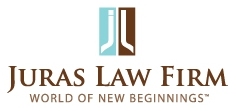EB-2 National Interest Waiver (NIW) Approved Without RFE — Groundbreaking RNA Virus Researcher Recognized by USCIS
We’re pleased to share another National Interest Waiver (NIW) success story — approved in just a few weeks and without a Request for Evidence (RFE).
We secured the approval under the EB-2 NIW category for a highly accomplished biomedical researcher based on his advanced degree and exceptional ability in science.
This case highlights how scientists conducting public health or biomedical research can qualify for U.S. permanent residence without employer sponsorship or labor certification when their work serves the national interest of the United States.
What Is the EB-2 National Interest Waiver (NIW)?
The EB-2 NIW allows professionals with advanced degrees or exceptional ability to self-petition for a U.S. green card if they can show that their work benefits the national interest.
Unlike most employment-based green card categories, no job offer or PERM labor certification is required.
To qualify, the petitioner must meet the three-part test from Matter of Dhanasar, 26 I&N Dec. 884 (AAO 2016):
- The proposed endeavor has substantial merit and national importance;
- The applicant is well positioned to advance the endeavor; and
- On balance, it would benefit the U.S. to waive the job offer and labor certification requirements.
Case Overview: Scientist Advancing RNA Virus Detection
Our client holds a Bachelor’s degree in Biochemistry and Cell Biology and over five years of progressive post-baccalaureate experience in biomedical research — qualifying as the equivalent of a U.S. Master’s degree under 8 C.F.R. § 204.5(k)(2).
He is currently a Ph.D. researcher at a U.S. university, where his work focuses on RNA-targeting CRISPR-Cas13 systems. His research aims to revolutionize rapid viral diagnostics, improving early detection of viruses such as COVID-19, influenza, RSV, and measles — all of which remain critical public-health concerns in the United States.
Evidence of Exceptional Ability in Science
To demonstrate exceptional ability, the petition included evidence meeting multiple criteria under 8 C.F.R. § 204.5(k)(3)(ii):
- Academic Record: Bachelor’s degree in Biochemistry and ongoing Ph.D. in Biochemistry and Cell Biology.
- High Remuneration: Competitive five-year fellowship exceeding $400,000 — far above standard student stipends.
- Professional Memberships: American Society for Biochemistry, the RNA Society, and the American Society for Microbiology.
- Recognition and Awards: He has received multiple national and international awards recognizing his innovation in biomedical research, academic excellence, and leadership in the scientific community. These honors reflect his exceptional contributions and recognition by peers in his field.
He has authored or co-authored 11 peer-reviewed publications, earned over 59 citations, and served as a peer reviewer for multiple international journals — clear evidence of national and international recognition.
National Importance: Research That Protects U.S. Public Health
Our client’s Ph.D. research focuses on engineering a novel RNA-virus detection platform using heat-tolerant CRISPR-Cas13a proteins.
This work could dramatically reduce testing time and cost, providing rapid, field-deployable diagnostics that are vital for pandemic preparedness and outbreak control.
According to expert letters, his research “addresses an urgent and ongoing public health concern” and “has the potential to revolutionize frontline viral diagnostics in the U.S.”
His findings have already enhanced the RNA-targeting efficiency of Cas13a by over 55-fold, positioning him to help advance the next generation of point-of-care molecular diagnostics.
Well Positioned to Advance His Endeavor
Our client has demonstrated the rare combination of deep scientific knowledge and hands-on technical expertise in:
- Protein structure determination using cryo-electron microscopy (cryo-EM),
- Protein expression and purification,
- RNA design and analysis, and
- CRISPR-based gene-editing systems.
He is currently collaborating with leading U.S. laboratories to integrate his engineered Cas13a protein into electrochemical biosensors and lateral-flow assays — tools that could enable rapid, portable detection of RNA viruses and significantly strengthen the U.S. public health infrastructure.
Why the National Interest Waiver Was Granted
Under the Dhanasar framework, USCIS concluded that:
- His research has substantial merit and clear national importance;
- He is exceptionally well positioned to continue advancing this field; and
- On balance, waiving the job-offer and labor-certification requirements benefits the United States because:
The result: NIW approval in record time — no RFE issued.
How Long Does an NIW Approval Take?
Processing times vary, but the USCIS average processing time is around 17.5 months. However, with premium processing, USCIS now offers an expedited adjudication within 45 calendar days.
Who Qualifies for a National Interest Waiver?
You may qualify for an EB-2 National Interest Waiver (NIW) if you:
- Hold an advanced degree or have the equivalent through education and progressive experience;
- Have exceptional ability in your field; and
- Meet the three-part test established in Matter of Dhanasar:
- Your proposed endeavor has substantial merit and national importance — meaning your work benefits the U.S. in areas such as health, technology, education, or the economy.
- You are well positioned to advance the endeavor — supported by your education, record of achievements, and professional experience.
- On balance, it would benefit the United States to waive the job offer and labor certification requirements — because your contributions serve the national interest to a substantially greater degree than would be expected through the standard labor market process.
Common fields for NIW eligibility include biomedical research, engineering, data science, healthcare innovation, clean energy, entrepreneurship, and technology.
Why Choose Juras Law for Your NIW Case
At Juras Law Firm, PLC, we have successfully represented scientists, researchers, engineers, architects, and entrepreneurs in securing EB-2 National Interest Waivers. Our approach combines strategic case analysis, precise legal drafting, and strong supporting evidence tailored to USCIS adjudication standards.
If you’re a scientist, researcher, architect, entrepreneur or other professional making an impact in your field — you may qualify for an NIW green card even without a U.S. job offer.
Schedule a consultation
Learn more
